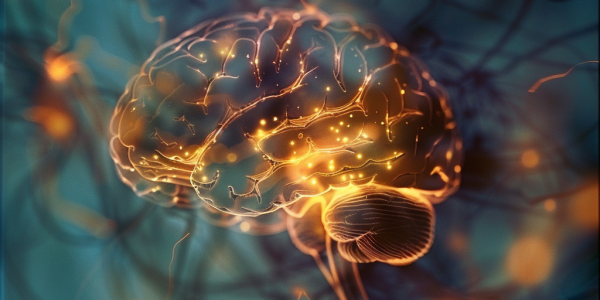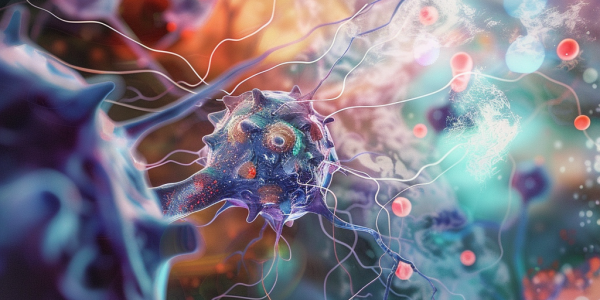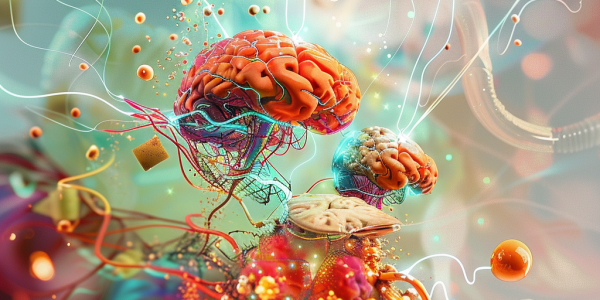New Study Reveals Glioblastoma’s Integration into Brain Circuits
Recent research from Heidelberg University reveals new insights into glioblastoma, highlighting how tumor cells integrate into brain circuits. This groundbreaking study, published in Cell, uncovers the complex interactions between aggressive brain tumors and nerve cells, paving the way for innovative therapies. Led by Dr. Varun Venkataramani, the research utilized modified rabies viruses to track glioblastoma cell behavior, emphasizing the need for ongoing studies to improve treatment outcomes for this challenging brain cancer.
Navigating Privacy and Neurodevelopment: Insights from Recent Research
In the digital age, privacy concerns are paramount as users navigate online landscapes filled with cookies that enhance functionality. This article explores the importance of managing cookie preferences and highlights groundbreaking neuroscience research on microexons and their implications for neurodevelopmental disorders, including autism spectrum disorder (ASD). Understanding these complex interactions is vital for both personal data privacy and advancements in neurobiology.
Study Reveals Neurogenesis’s Key Role in Cognitive Functions and Epilepsy
A groundbreaking study published in Cell Stem Cell reveals the crucial role of neurogenesis in adult brains, particularly its impact on verbal learning and memory. Conducted by researchers at USC, the study highlights how generating new neurons can mitigate cognitive decline, especially in patients with drug-resistant epilepsy. The findings suggest that enhancing neurogenesis may lead to innovative therapeutic strategies for improving cognitive functions in adults suffering from epilepsy and related disorders.
Macrophages: Immune Cells’ Surprising Role in Motor Control and Metabolism
Groundbreaking research from the University of Copenhagen and Imperial College London reveals that macrophages, traditionally known for their immune functions, play a crucial role in motor control and metabolic balance. Published in Nature, the study uncovers how these immune cells within muscle spindles modulate neural activity and link energy demands to movement, opening new avenues for treatments of motor disorders and metabolic conditions.
Breakthrough Study Reveals Diversity in Zebrafish Intracardiac Nervous System
A groundbreaking study published in Nature Communications reveals significant insights into the intracardiac nervous system (IcNS) of zebrafish, highlighting its molecular, cellular, and functional diversity. This research enhances our understanding of the heart’s nervous system, crucial for cardiovascular health, and identifies diverse neuronal types that play a vital role in cardiac rhythm regulation. These findings open new avenues for future research and potential therapeutic approaches for heart conditions.
Understanding Axonal Morphology and Its Impact on Neuronal Function
In the digital age, understanding cookie consent and privacy is essential for online users. This article explores the importance of managing cookie preferences and highlights a recent study on axonal morphology, revealing how membrane mechanics influence the structure and function of unmyelinated axons in the nervous system.
UCLA Researchers Uncover Netrin1’s Critical Role in Spinal Cord Development
UCLA researchers have uncovered a groundbreaking role for the protein netrin1 in spinal cord development, revealing its function as a crucial regulator of bone morphogenetic protein (BMP) signaling. This discovery not only enhances our understanding of neural development but also opens new avenues for innovative therapies aimed at spinal cord injury repair and regeneration. Published in Cell Reports, this study highlights netrin1’s dual role in guiding nerve fiber growth and maintaining BMP signaling boundaries, which is vital for proper sensory neuron formation.
Discovery of Neuronal Circuit Governing Appetite Offers New Insights into Obesity
Recent research reveals a three-part neuronal circuit in mice that regulates appetite, highlighting the biological factors influencing eating behavior. This discovery could reshape our understanding of obesity, shifting the focus from personal choice to physiological differences. As scientists explore the potential existence of similar circuits in humans, new strategies for addressing overeating may emerge, emphasizing the need to understand the neural mechanisms behind hunger and satiety.
MIT Study Reveals Exercise Boosts Neuron Growth and Nerve Repair
MIT’s groundbreaking research reveals that exercise not only strengthens muscles but also promotes the growth of neurons, highlighting the dual role of biochemical signals and mechanical dynamics in nerve repair. This study opens new avenues for therapies targeting nerve injuries and neurodegenerative diseases, showcasing the profound benefits of physical activity on neurological health.
Exploring Digital Privacy and the Science of Memory Retention
In today’s digital age, understanding cookie usage on websites is crucial for managing your privacy. This article explores how cookies enhance user experience while also addressing privacy concerns, including the implications of accepting optional cookies. Additionally, it highlights groundbreaking research on the massed-spaced learning effect, revealing insights into memory mechanisms across neural and non-neural systems. Discover how these findings could influence education and therapeutic strategies for memory disorders.










